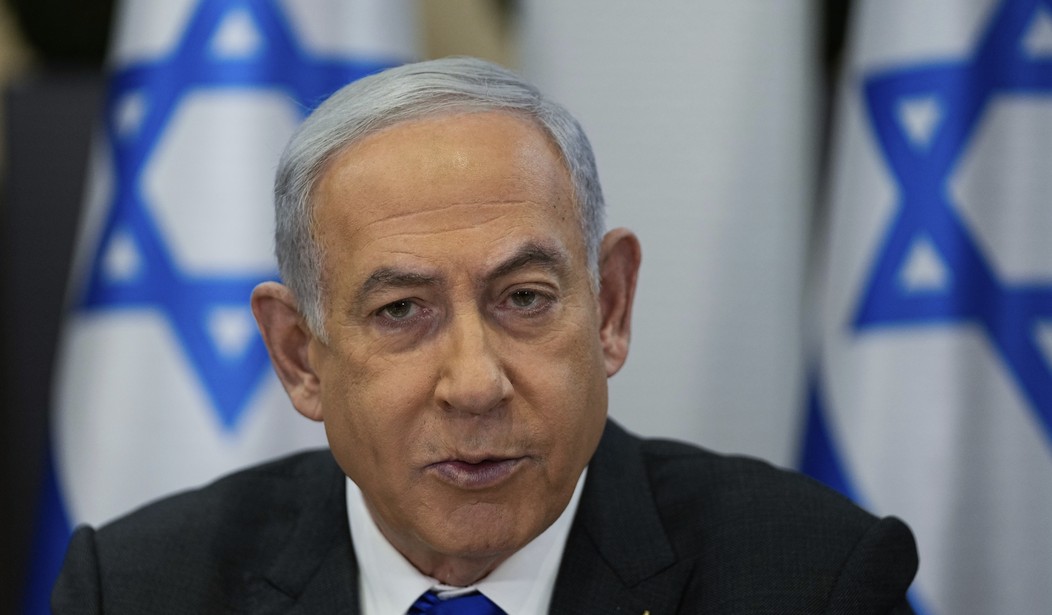On Monday, we learned that Israel's Prime Minister, Benjamin Netanyahu, dissolved his country's War Cabinet. Decisions involving the prosecution of the war against Hamas will henceforth be made by Israel's main security cabinet.
Israeli Prime Minister Benjamin Netanyahu has dissolved his war cabinet, an Israeli official told CNN Monday, just over a week after opposition leader Benny Gantz withdrew from the body.
Decision-making will now move back to the government’s main security cabinet, the Israeli official said, claiming Netanyahu “will hold smaller forums on sensitive matters.”
The war cabinet, set up five days after the Hamas-led terrorist attacks against Israel on October 7, had five members: Netanyahu, Defense Minister Yoav Gallant, opposition leader Benny Gantz, and two “observers,” Ron Dermer and Gadi Eisenkot.
Related: Israeli War Cabinet Minister Benny Gantz Resigns from Netanyahu's Government
It was in part Benny Gantz's opposition to the Prime Minister's handling of the conflict that led to the dissolution of the war cabinet.
But Gantz – seen as Netanyahu’s most formidable political opponent – announced his “complex and painful” decision to withdraw from the cabinet last week, citing Netanyahu’s failure to devise a strategy for the conflict in Gaza and the future governance of the Strip.
“Netanyahu prevents us from moving forward to a real victory [in Gaza],” Gantz said June 9.
Ironically, the abandonment of the war cabinet could have the potential to make the prosecution of the war in Hamas more efficient.
Related: New Polling Out of Gaza and the West Bank Paints a Grim Picture of the Future
RIP to Biden's Gaza Pier As He Chalks Up Another Foreign Policy Disaster
War-fighting decisions, it now seems, will be made by a smaller group, presumably one closer to the Prime Minister.
By dismantling the cabinet, Netanyahu may have avoided having to accede to (National Security Minister Itamar) Ben-Gvir’s calls to join the cabinet, which could have further strained Israel’s relations with the United States, or having to reject his demands, which could have angered the more extreme wing of Netanyahu’s coalition.
Another interpretation is that without Gantz – and Eisenkot who also resigned – in it, there was no longer any point in keeping the war cabinet going. Instead, an Israeli official tells CNN, Netanyahu will in future hold smaller forums to discuss sensitive matters relating to the war with Hamas. It’s unclear whether Ben-Gvir will be excluded from these as well.
Itamar Ben-Gvir, who is a member of the main security cabinet, has been calling for more aggressive actions against Hamas and has objected strongly to some acts that have been pushed by the international community, including pauses in the fighting to allow humanitarian aid to flow into Gaza - aid which is being largely co-opted by Hamas.
See Related: Much of US Aid Meant for Gaza Being Stolen - Is Anyone Really Shocked?
Shortening any decision-making process usually results in a more efficient operation overall, but it's not clear that this is the reason for this action on Netanyahu's part. The two war cabinet members who left, particularly Benny Gantz, were on record opposing Netanyahu's war policies, and now they are out of that loop and calling publically for new elections. At least one recent survey conducted in Israel has Gantz's approval ratings notably higher than Prime Minister Netanyahu's. (Note, the linked article is in Hebrew but the graph of approvals includes photos of the two men.)
It's unclear at this point what's likely to happen next or how it will affect the war on Hamas. As this is a developing issue, be assured that we will continue to follow it here at RedState and update you as events warrant.














Join the conversation as a VIP Member